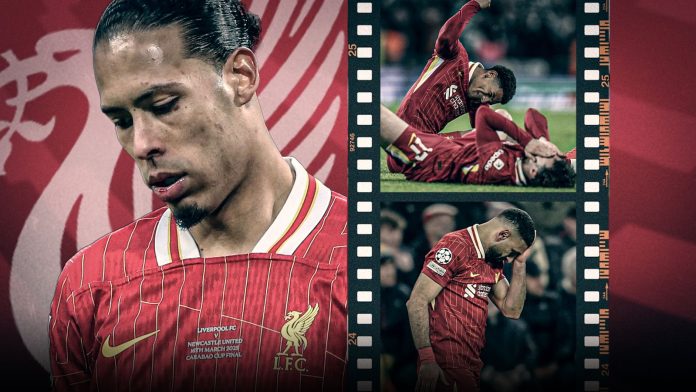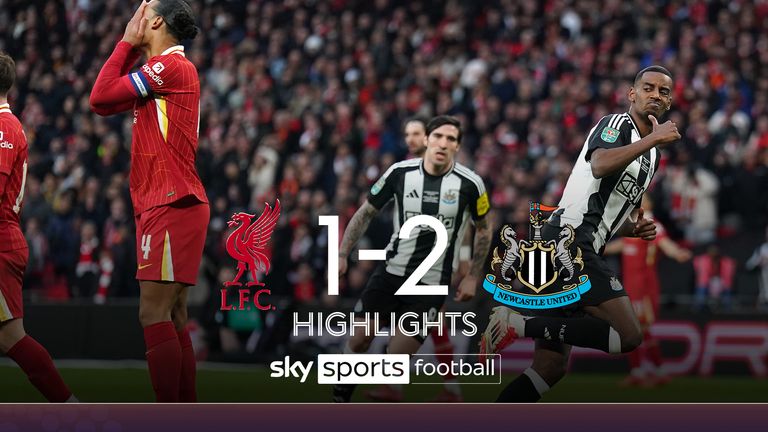Arne Slot rejected the idea that Liverpool’s Carabao Cup final loss to Newcastle was down to fatigue, saying it had “nothing to do with running” in his post-match press conference. Instead, he highlighted his side’s failure to win enough duels.
It is in those physical battles, though, that the signs of tiredness have become most apparent. In the last fortnight, Liverpool have registered three of their five lowest duel success rates all season.
The issue was most pronounced away against Paris Saint-Germain, when Liverpool won just 32.5 per cent of the game’s duels, the club’s lowest success rate on record in the Champions League. In the second leg of that tie at Anfield, and against Newcastle at Wembley on Sunday, their success rate was 42.7 per cent.
The dip can be traced back further in the Premier League. Before the turn of the year, Liverpool won more than 50 per cent of their duels in nine games out of 18. They have only done so in two out of 11 since. Slot might not admit it but his side have lost their physical edge.
“Liverpool’s legs have run out of steam,” as Sky Sports pundit Jamie Carragher put it on Sunday. “Set-piece wise, duels in the middle of the park and for pace, Liverpool couldn’t cope.”
Happily for Slot, there has been no meaningful impact to their results in the Premier League. Performance levels have fluctuated but Liverpool remain unbeaten since the 1-0 loss to Nottingham Forest in September. Their 12-point lead over Arsenal at the top of the table should allow them to win the title with room to spare.
That feat alone would of course constitute a triumphant first season in charge for Slot. Few fancied his Liverpool side as title winners back in August. But if he is to repeat their success next term, and go the distance in the cup competitions too, he will need to heed the lessons of their dip.
He could argue, with some justification, that his conservative approach to rotation has helped Liverpool build their commanding position at the top of the Premier League. He has leaned heavily on his best players, yes. But they have delivered, mostly staying fit and putting Liverpool on track for a 90-point campaign.
There were always questions, though, over the sustainability of such a policy and the recent slump highlights the dangers.
Liverpool’s average of 1.76 line-up changes per game in the Premier League is the seventh-lowest in the division this season and makes them an outlier compared to recent title winners. The last seven sides to have won the title, dating back to Manchester City in 2017/18 have averaged 2.79 line-up changes per game.
Those sides were able to maintain freshness until the end, in most cases, but Liverpool now find themselves with too many players having played too many minutes. Virgil van Dijk, Mohamed Salah, Ryan Gravenberch and Alexis Mac Allister have all played more than 3,000. There are others not far behind them.
In fact, with Dominik Szoboszlai, Trent Alexander-Arnold, Andy Robertson, Luis Diaz and Ibrahima Konate also close to that threshold, Liverpool have nine players in the top 50 for minutes played by Premier League players in all competitions this season.
No other side has more than six.
Some, of course, such as Salah and





